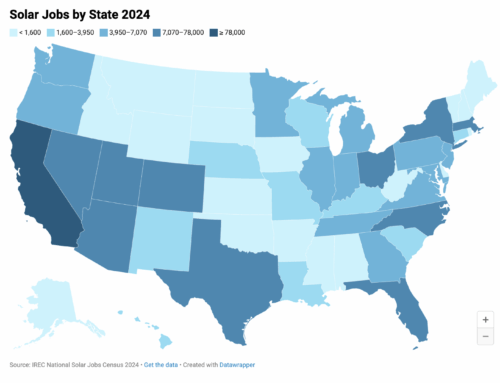Jamaica’s First Native Bitcoin App Is Helping With Hurricane Relief
November 20, 2025
Last month, Hurricane Melissa ravaged Jamaica, and, from the first day the storm hit the shores of the country, Flash—a Bitcoin app—has been used to fundraise, distribute funds, and purchase lifesaving items for the storm’s victims.
The app, created by Jamaican native Jabari Ennis, who goes by “Dread” in Bitcoin circles, was initially designed to mitigate the difficulties of making digital payments in Jamaica. However, it has also proven to be a vital tool in this time of emergency.
“Since we’ve been hit by Hurricane Melissa, the need is greater than ever to have open and resilient payment rails and money that we can use during disasters like this, because this will not be the last one,” Ennis told me in an interview. “The Caribbean has had hurricanes like this make landfall every year for the past three years.”
Within hours of the storm affecting Jamaica, Ennis had set up a fundraising campaign—which is still running—via a BTCPay Server plugin running on the backend of Flash.
The campaign raised $10,000 worth of bitcoin within 72 hours, with the total donation amount now over $15,000.
Those funds have been spent on items including water purification tablets, diapers, and food staples such as rice and beans, which Ennis’ team have been distributing to those in need.
Ennis noted the level of fluidity with which the funds came in and were put to work thanks in part to bitcoin.
“There has been a lot of criticism over the speed and effectiveness of initial aid distribution from aid organizations,” said Ennis. “However, using bitcoin, we have been able to activate volunteers on the ground from day one.”
As bitcoin donations have come in, Ennis and his team have used Flash to off-ramp from bitcoin into fiat currency to purchase relief items. Flash enables users to sell bitcoin for fiat currency, which can then be deposited into a bank account via the app. It also enables the team to purchase goods with bitcoin from merchants who accept it or to sell the bitcoin for cash, which can then be used to buy supplies and food for those in need.
The app has a number of features that make it handy for this current situation in which it’s being used.
How Flash Works
Flash, which is currently in beta, serves a number of functions, one of which is enabling its users to make quick, cheap transactions over the Lightning Network (Lightning), a payment layer built on top of Bitcoin.
The app started out as a fork of Blink Wallet (Blink), and it also employs the Breez SDK, which provides users with a non-custodial Lightning wallet within apps.
The app also facilitates transactions in the equivalent of digital U.S. dollars, which is facilitated by a technology comparable to a unique feature of Blink Wallet: Stablesats.
Stablesats uses bitcoin perpetual inverse swaps to create a synthetic version of the US dollar. Users do not have to concern themselves with such technical details, though. Balances simply appear as “USD” in the app.
And Flash is not only a reliable off-ramp for Jamaicans, but the first reliable on-ramp, as well.
“The banks in Jamaica may block you if you try to send funds to exchanges like Coinbase or Kraken,” said Ennis.
“Jamaicans have been locked out of accessing bitcoin unless they use a friend’s bank account in the US,” he added. “I knew I needed to build this on-ramping infrastructure.”
From Corporate America to Bitcoin
Ennis first started studying Bitcoin in 2018, while he was still working in corporate America as a software developer and consultant.
He’d come to the U.S. from Jamaica years prior to study computer engineering, as he’d received a half academic, half track and field scholarship to an American university. (Fun fact: Ennis held the national pole vault record in Jamaica for 11 years.)
By 2021, he wanted to be more involved with Bitcoin, and so he traveled to Bitcoin Beach in El Zonte, El Salvador, one of the earliest and well-known bitcoin circular economies, looking to learn what he could from the project in hopes of creating something like it in his home country.
In El Salvador he found himself brainstorming and strategizing alongside the likes of Peter McCormack, then host of What Bitcoin Did; Jack Mallers, CEO of Strike and Twenty One Capital; Miles Suter, Bitcoin Lead at Block; and Mike Peterson and Roman ‘Chimbera’ Martinez from Bitcoin Beach.
Based on that experience, Ennis decided that he needed to focus on developing both a Bitcoin community as well as Bitcoin infrastructure in Jamaica, as his home country had neither at the time.
He quickly found a community leader but knew that developing infrastructure would be more challenging. However, he was determined to build it, because he understood how great the need was, as digital payments are difficult and expensive to make in Jamaica.
“Over 77% of Jamaicans have a bank account, but only about 30% use it frequently for digital payments, mostly because of the inconvenience and fees,” explained Ennis.
“And debit cards are attached to bank accounts, but many small and informal merchants are still cash-only,” he added. “So, what was missing in Jamaica is a way for people to pay one another peer-to-peer or to pay merchants digitally without hassle or high fees.”
Early Users
Philip Graci—founder and executive producer at Hot Steppa, an event and music production company partially based in Jamaica—and his business partner Emily Newland use bitcoin to avoid wire transfer fees for payments that they make between the different divisions of their company.
“We use Flash to send funds from our U.S. entity to our Jamaican entity on a monthly basis and it saves the company from having to pay a $35 bank wire fee each month,” explained Graci to me in a Telegram chat.
Ennis noted that he thinks payments like this as well as remittance payments will be a major market for Flash to capture.
What is more, Graci noted that he plans to set up a merchant terminal powered by Flash at the events Hot Steppa hosts in the country this year.
He also shared that some merchants in Jamaica are now accepting payments via Flash, as well. Graci has paid for lunch at an establishment called Pizza Please in Halfway Tree, a major commercial hub in Jamaica, as well as at some food vendors located on Bob Marley Beach, a public beach in the country that the legendary musician the beach is named after often frequented.
But perhaps the most important early users have been those who have helped distribute funds and make purchases via the app in efforts to get aid to those affected by Hurricane Melissa.
Focusing on Hurricane Relief Efforts
Ennis had been hoping to bring Flash out of beta by December 1st of this year, but he said that this will have to take a back seat to his helping as many Jamaicans as possible as quickly as possible.
He added that his team “will continue onboarding as many businesses as we can so we can purchase the items we need and we can provide relief to those who need it.”
“Melissa devastated Jamaica’s infrastructure and paralyzed the banking system, so bitcoin has become a money of last resort regarding aid,” said Ennis. “This is what it’s like to see a resilient and open monetary network in action.”
Search
RECENT PRESS RELEASES
Related Post




